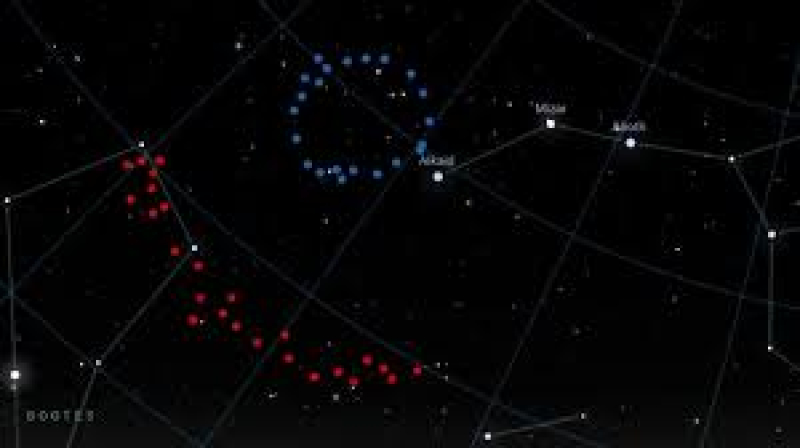- NCP Demands Impeachment, Arrest of President |
- PM Pledges to Modernise, Strengthen Border Force |
- Dhaka Tops Global Pollution List with Hazardous Air |
- Country Observes Martyred Army Day Today |
- 100 CSOs rally against Trump’s trade tactics, urge access to drugs |
Huge galaxy ring challenges thinking on Universe

Scientists at the University of Central Lancashire have discovered a gigantic, ring-shaped structure in space.
It is 1.3bn light-years in diameter and appears to be roughly 15 times the size of the Moon in the night sky as seen from Earth.
Named the Big Ring by the astronomers, it is made up of galaxies and galaxy clusters.
They say that it is so big it challenges our understanding of the universe.
It cannot be seen with the naked eye. It is really distant and identifying all the galaxies that make up the bigger structure has taken a lot of time and computing power.
Such large structures should not exist according to one of the guiding principles of astronomy, called the cosmological principle. This states that all matter is spread smoothly across the Universe.
Although stars, planets and galaxies are huge clumps of matter in our eyes, in the context of the size of the universe they are insignificant - and the theory is that much bigger patches of matter should not form.
The Big Ring is by no means the first likely violation of the cosmological principle and so suggests that there is another, yet to be discovered, factor at play.
According to Dr Robert Massey, deputy director of the Royal Astronomical Society, the evidence for a rethink of what has been a central plank of astronomy is growing.
"This is the seventh large structure discovered in the universe that contradicts the idea that the cosmos is smooth on the largest scales. If these structures are real, then it's definitely food for thought for cosmologists and the accepted thinking on how the universe has evolved over time," he said.
The Big Ring was identified by Alexia Lopez, a PhD student at the University of Central Lancashire (UCLan), who also discovered the Giant Arc - a structure spanning 3.3bn light-years of space.
Asked how it felt to have made the discoveries, she said: "It's really surreal. I do have to pinch myself, because I made these discoveries accidentally, they were serendipitous discoveries. But it is a big thing and I can't believe that I'm talking about it, I don't believe that it's me
"Neither of these two ultra-large structures is easy to explain in our current understanding of the universe," she said.
"And their ultra-large sizes, distinctive shapes, and cosmological proximity must surely be telling us something important - but what exactly?"
Both the Big Ring and the Giant Arc appear relatively close together, near the constellation of Bootes the Herdsman.
Professor Don Pollacco, of the department of physics at the University of Warwick, said the likelihood of this occurring is vanishingly small so the the two objects might be related and form an even larger structure.
"So the question is how do you make such large structures?
"It's incredibly hard to conceive of any mechanism that could produce these structures so instead the authors speculate that we are seeing a relic from the early universe where waves of high and low density material are 'frozen' in to extragalactic medium."
There are also similarly large structures discovered by other cosmologists - such as the Sloan Great Wall, which is around 1.5 billion light-years in length, and the South Pole Wall, which stretches 1.4 billion light-years across.
But the biggest single entity scientists have identified is a supercluster of galaxies called the Hercules-Corona Borealis Great Wall, which is about 10 billion light-years wide.
While the Big Ring appears as an almost perfect ring on the sky, analysis by Ms Lopez suggests it has more of a coil shape - like a corkscrew - with its face aligned with Earth.
"The Big Ring and the Giant Arc, both individually and together, gives us a big cosmological mystery as we work to understand the universe and its development."
The findings have been presented at the 243rd meeting of the American Astronomical Society (AAS) in New Orleans, reports BBC.

